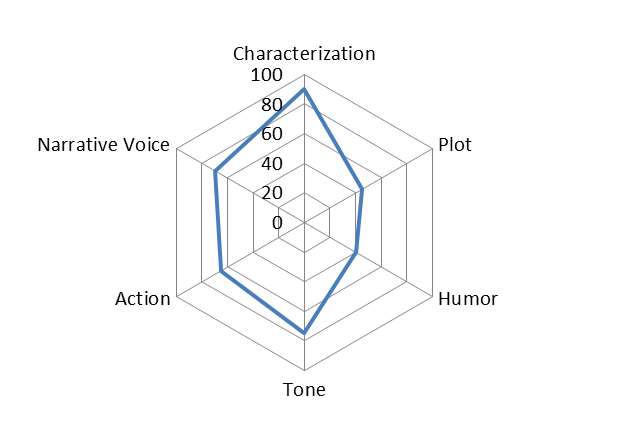Title of Work and its Form: “You Need to Stop This, You Need to Disappear,” short story
Author: Raymond Fleischmann
Date of Work: 2013
Where the Work Can Be Found: The story premiered in the Spring 2013 issue of The Iowa Review. The fine folks who work at the journal would certainly appreciate if you purchase the issue and/or subscribe. You may also access the story through the Iowa Review archives on EBSCO; your local librarian will be happy to help you work your way through the database if you don’t already know how.
Element of Craft We’re Stealing: Balancing Story Elements
Discussion:
Carolyn sees the woman across the courtyard every morning. At seven a.m. sharp, the middle-aged woman opens her blinds, revealing her naked body. Carolyn finds the woman alluring; she is lured in for reasons she doesn’t understand. Perhaps it is because Carolyn finds herself at a strange point in her life. Her fifteen-year-old son, Cameron, is not doing very well in school. Her high-pressure job is stressing her out, as is the sad distance in her relationship with her ex-husband. The mother/son relationship reaches a kind of breaking point and the woman across the way plays a part.
Is this a vague summary of the story? Yes. It’s also an appropriate one. The narrative thread of the story reflects the mental state of its protagonist. Carolyn is not in crisis, really, she’s just in a kind of plateau in her life. This malaise is reflected in the narrative. In this story, Mr. Fleischmann has chosen to examine character closely instead of telling a Michael Bay-thrill-a-minute tale. (One that’s much more interesting than a Michael Bay film and one that will induce less vertigo…) Mr. Fleischmann therefore boosts the power and amount of characterization that he does in the story. The reader is immersed in Carolyn’s perspective and is invited to learn about many facets of her personality and her relationship with her son.
Plot your stories along the same lines of this completely made-up radar chart that doesn’t relate to Mr. Fleischmann’s story:
You don’t need to maximize EVERY SINGLE POSSIBLE ELEMENT that could be in your story, but there need to be a few well-chosen peaks here and there. Mr. Fleischmann’s story peaks in characterization and in the beauty of his language. I happen to be a fairly plot-centric reader, and I was with Mr. Fleischmann the whole time because he gave me plenty to enjoy, even if he didn’t give me my very favorite kind of story.
Remember: characters are people, my friend. And how do we find out what people are really like? By seeing how they act in a number of different situations. Mr. Fleischmann is very careful to show us how Carolyn reacts to a wide range of events. She sees the naked woman, she…confirms something about her son, she punches out her editing work like a pro. Giving her these varied tasks allows the reader to get closer to her.
Here’s another way to think of it: do you really know your friends at work? Really KNOW them? You only see them in one setting during the same time of day and around the same people. Now imagine your work friends at a bachelor or bachelorette party…NOW you’ll learn what they’re really like!
Titles are hard, aren’t they? Let’s examine the title of this story: “You Need to Stop This, You Need to Disappear.” Before you read the story, you might be a little puzzled as to what it might mean. In retrospect, however, it becomes pretty clear that this is what Carolyn might say to the woman across the way. Once you read the story, you know why she might say it, too. Therefore, here is…
TITLE FORMULA #24601: A crucial line of unspoken dialogue.
What Should We Steal?
- Ensure that you have offered your reader SOMETHING that will hold their attention. If the plot of your story is extremely straightforward, you may want to enhance other elements.
- Force your characters into different kinds of situations. The true measure of a man or woman (even a made-up one) is how they deal with different problems.
- Title Formula #24601: A crucial line of unspoken dialogue. (Sounds like something Raymond Carver might do.)

